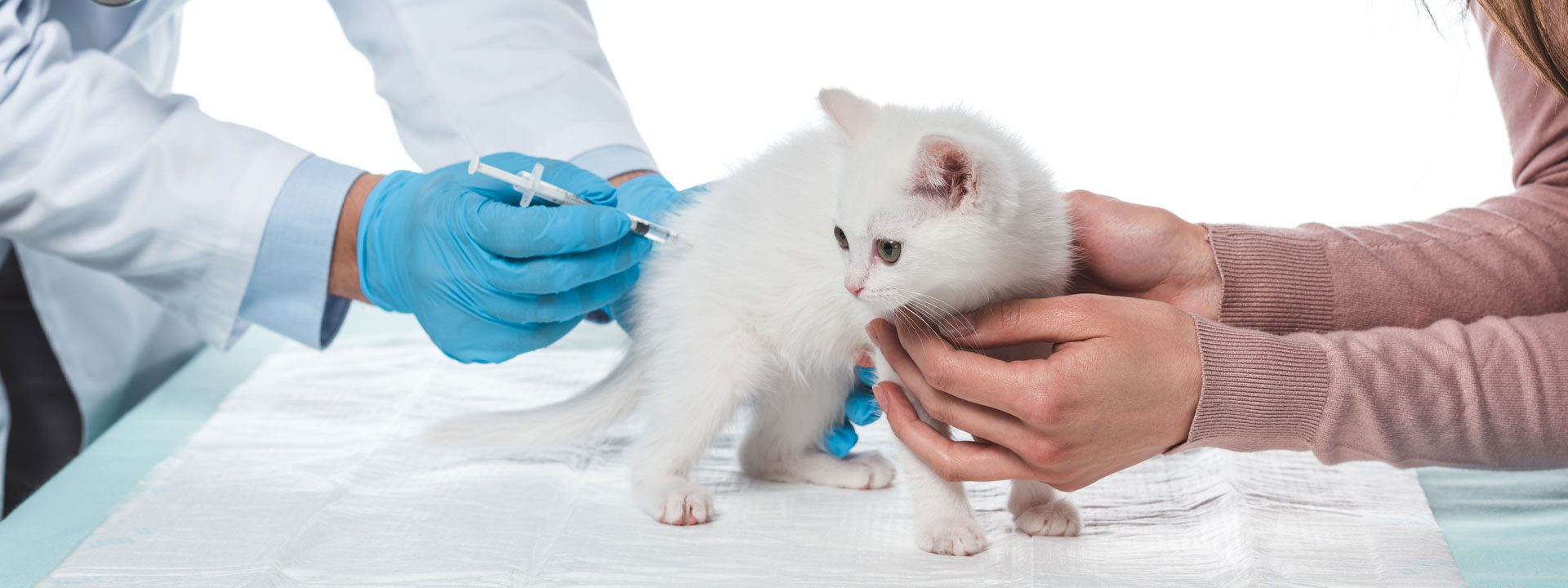Vaccines for Cats: Why are They Important?: Ensuring your pet’s health is a crucial aspect of their overall well-being. By making sure your pet receives the necessary vaccinations at the appropriate intervals, you can protect them from common illnesses and enhance their overall health and lifespan. Here is some additional information regarding the essential and suggested vaccinations for your kitten or cat.
Essential Vaccines
Port Kennedy Veterinary Hospital provides a comprehensive range of three core vaccinations. The vaccines for feline rhinotracheitis and feline calicivirus are effective in preventing a respiratory disease commonly known as ‘cat flu’. This illness can be transmitted from one cat to another through coughing or sneezing, and it can impact cats of all ages. However, young kittens are especially vulnerable to it. It is recommended to receive an annual vaccine boost to ensure ongoing protection against re-infection.
More Vaccines
Additionally, we provide the option of vaccines for feline leukaemia. This is a condition that weakens your cat’s immune system and makes them more vulnerable to infections. We also offer vaccines for feline immunodeficiency virus This is a slow-acting infectious disease that also impacts the immune system.
When is the ideal time to vaccinate my pet?
Vaccinations for kittens typically start when they are between 6-8 weeks old and will need to be given regularly during their initial months. It is crucial to ensure that vaccines are administered to young kittens at the appropriate time. And this is because they gradually lose the protection provided by maternal antibodies against diseases.
Your veterinarian will provide guidance on the recommended frequency of vaccinations for adult cats, taking into consideration their age and lifestyle. Ensure your pet receives comprehensive coverage for all preventative care by choosing one of our wellness packages. These packages conveniently combine vaccinations and other preventative treatments into an affordable bundle.
Should I Get Vaccinations for My Indoor Cat?
Even though your furry friend may spend most of their time indoors, it’s still important to make sure they receive the necessary vaccines. This includes the core vaccinations for feline rhinotracheitis, feline calicivirus, and feline panleukopenia.
It’s crucial to keep in mind that these illnesses can be life-threatening, emphasizing the need for total protection. When your inquisitive feline ventures outside, there is a risk of them ending up in a shelter or encountering other cats, which could potentially expose them to harmful diseases. It’s important to be aware that kittens can unfortunately acquire diseases at a young age, either before you bring them home or even while they are still in the womb. This means that there is always a chance of these diseases resurfacing in cats who are not adequately protected.
Understanding the Risks of Vaccination
Typically, common vaccines pose minimal risks. Your pet may experience a mild reaction at the injection site, but rest assured that serious side effects are unlikely. Ensuring the utmost protection for your kitten involves keeping them indoors until ten days after their final vaccination. Annual boosters are crucial for ensuring the effectiveness of vaccines.
If you’re interested in scheduling vaccinations for your pet, feel free to reach out to Port Kennedy Veterinary Hospital at 08 9524 6644 or visit our contact page for additional contact options.
Also visit – Go West Handbook

